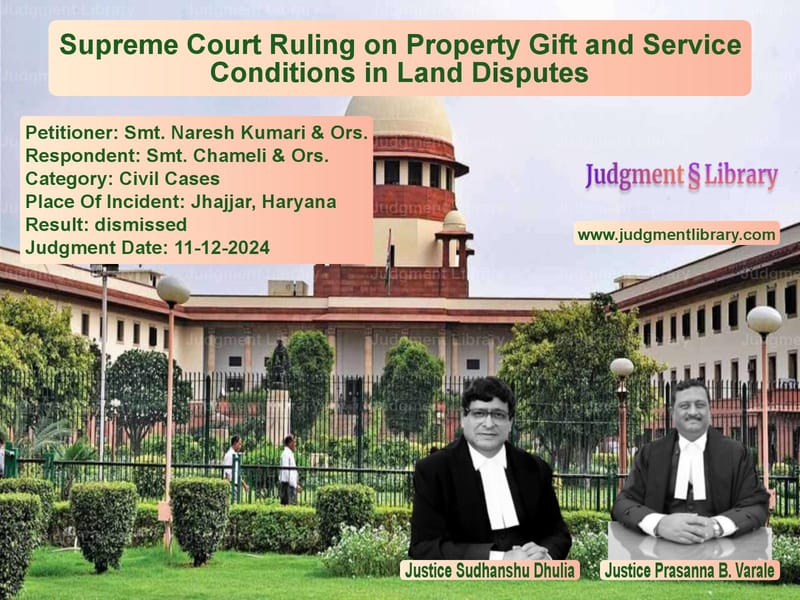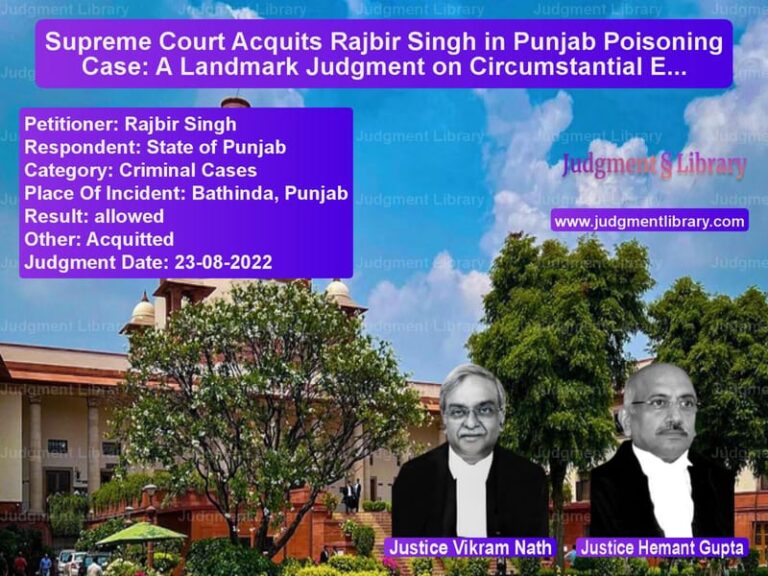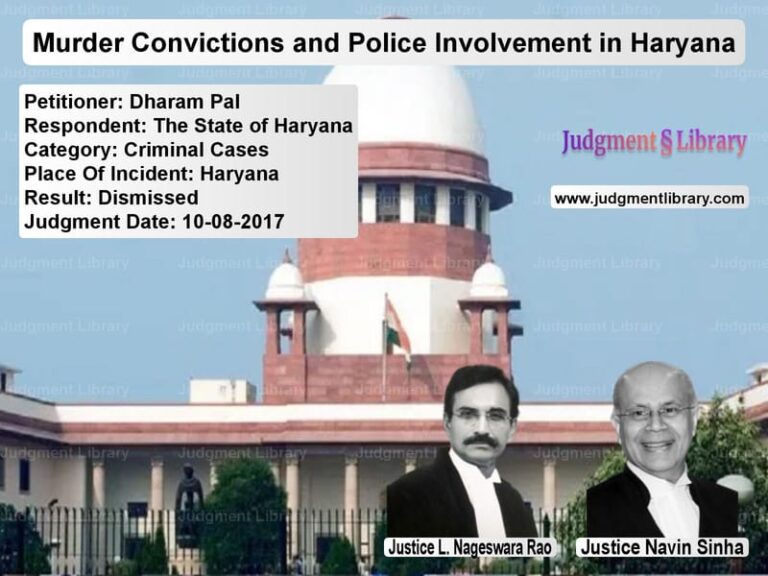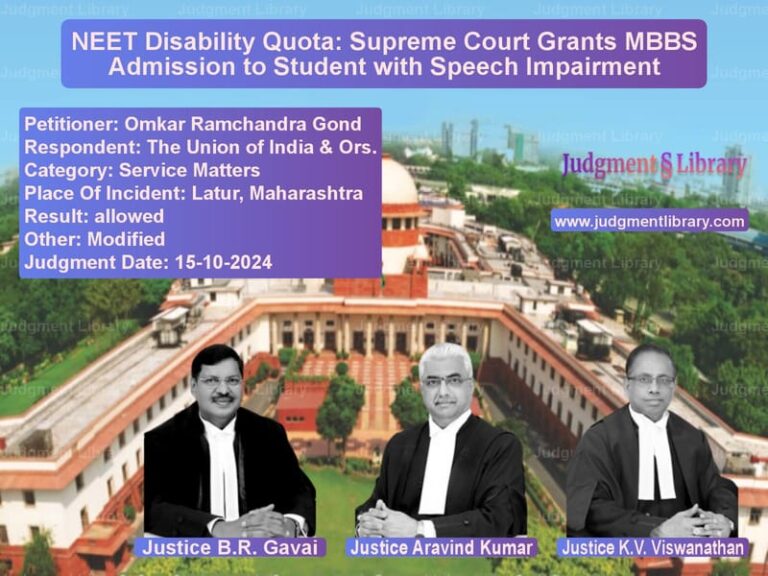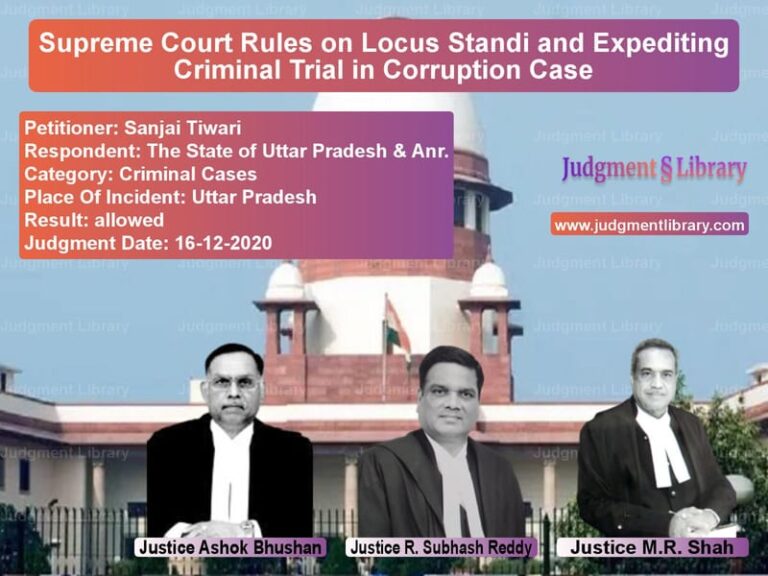Supreme Court Ruling on Property Gift and Service Conditions in Land Disputes
The Supreme Court of India, in the case of Smt. Naresh Kumari & Ors. vs. Smt. Chameli & Ors., addressed a long-standing property dispute involving an oral gift made in 1953. The judgment, delivered by Sudhanshu Dhulia and Prasanna B. Varale, sheds light on the legality of conditional gifts of land, the principle of adverse possession, and the importance of natural justice in civil disputes.
Background of the Case
The dispute revolved around land measuring 38 Bighas and 8 Biswas that was orally gifted by Rai Bahadur Randhir Singh (the donor) to Sanwalia, Ratiram, and Sheochand (the donees) in 1953. The plaintiffs, heirs of the donor, filed a suit in 1998 seeking resumption of the land, claiming that the gift was conditional on the donees rendering lifelong services to the donor and his heirs. Since the services were allegedly discontinued, they argued that the land should revert to them.
The defendants, heirs of the original donees, countered that the gift was absolute and that the condition of service did not extend beyond the donor’s lifetime. They further asserted that they had been in continuous possession of the land for over 45 years, making the suit barred by limitation.
Key Legal Questions
- Was the gift subject to a condition that required perpetual service?
- Did the plaintiffs provide sufficient evidence to prove that the services were discontinued?
- Was the suit barred by limitation due to the defendants’ continuous possession?
Trial and Appellate Court Decisions
The Trial Court ruled in favor of the plaintiffs, holding that the land was given only as a life interest and should revert to the plaintiffs since the services had stopped. The First Appellate Court upheld this decision.
However, the High Court reversed the decision, dismissing the suit primarily on the ground of limitation. The High Court observed that:
- The mutation record of 1953 did not explicitly mention that the donees had to serve the donor’s heirs.
- The plaintiffs failed to specify when and how the services had stopped.
- The defendants had provided evidence that the donor’s heirs had left the village, leaving no one to be served.
Supreme Court’s Observations
Interpretation of the Oral Gift
The Supreme Court analyzed the mutation order of 1953, which recorded:
“The donor has gifted the land in lieu of services till life… If donees refuse to render the services, the land shall revert to the donor or his heirs.”
The Court noted that while this clause suggested a condition, the lack of specificity made it difficult to enforce perpetually.
Historical Context and Land Reforms
The judgment highlighted that in 1953, India was undergoing land reforms, and large landowners sought ways to protect surplus land from government acquisition. Many landlords transferred land through gifts to trusted individuals. The Court observed:
“The transaction must be viewed in the context of the land reform laws of the time. Landowners sought to retain land by transferring it in ways that appeared legitimate under the new laws.”
Deficiency in Plaintiffs’ Evidence
The Court criticized the plaintiffs for failing to prove their claim:
- No specific details were provided about the services that were allegedly stopped.
- The plaintiffs did not show that they had ever demanded services from the defendants.
- The defendants demonstrated that the donor’s heirs had left the village decades ago, making service impossible.
The Court concluded:
“A mere allegation that services have stopped, without evidence, cannot justify resumption of land after 45 years.”
Principles of Transfer of Property Act (TPA)
Although the Transfer of Property Act, 1882 (TPA) was not applicable in Punjab at the time, the Court noted that its principles, particularly those regarding gifts, were relevant:
- Section 126: A gift can be revoked if the condition is specific and enforceable.
- Section 127: Onerous gifts impose obligations, but a perpetual service requirement could be considered forced labor, which is unconstitutional.
The Court stated:
“A gift conditioned upon perpetual, unpaid labor would amount to forced labor, violating Article 23 of the Constitution.”
Adverse Possession and Limitation
The Court held that the defendants had enjoyed uninterrupted possession for decades, making the claim legally untenable:
“The plaintiffs’ claim is barred by limitation. Possession, uninterrupted for 45 years, gives rise to a strong presumption of ownership.”
Final Verdict
The Supreme Court dismissed the appeal, upholding the High Court’s ruling. The key takeaways from the judgment were:
- The condition of lifelong service could not be enforced indefinitely.
- The plaintiffs failed to provide substantial evidence.
- The defendants’ long, peaceful possession validated their ownership.
The judgment reinforced the principle that property transfers must be clearly documented, and claims based on vague conditions cannot override long-standing possession.
Petitioner Name: Smt. Naresh Kumari & Ors..Respondent Name: Smt. Chameli & Ors..Judgment By: Justice Sudhanshu Dhulia, Justice Prasanna B. Varale.Place Of Incident: Jhajjar, Haryana.Judgment Date: 11-12-2024.
Don’t miss out on the full details! Download the complete judgment in PDF format below and gain valuable insights instantly!
Download Judgment: smt.-naresh-kumari-&-vs-smt.-chameli-&-ors.-supreme-court-of-india-judgment-dated-11-12-2024.pdf
Directly Download Judgment: Directly download this Judgment
See all petitions in Property Disputes
See all petitions in Succession and Wills
See all petitions in Contract Disputes
See all petitions in Specific Performance
See all petitions in Judgment by Sudhanshu Dhulia
See all petitions in Judgment by Prasanna Bhalachandra Varale
See all petitions in dismissed
See all petitions in supreme court of India judgments December 2024
See all petitions in 2024 judgments
See all posts in Civil Cases Category
See all allowed petitions in Civil Cases Category
See all Dismissed petitions in Civil Cases Category
See all partially allowed petitions in Civil Cases Category

